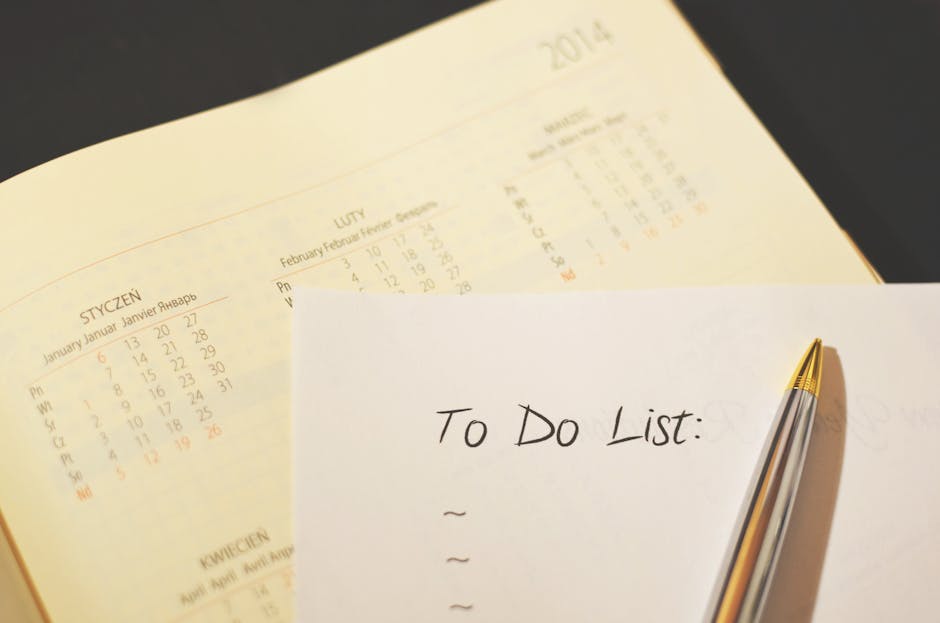How to Manage Time and Schedule to Meet Personal and Professional Goals
Getting Organized
Organization is key to successfully managing one’s time and achieving personal and professional goals. Creating and following an organized plan is the most effective way to increase productivity and decrease stress. Here are a few ways to establish a good organizational system:
- Develop a plan. The plan should be based on one’s personal goals, the timeline to reach them, and the resources available to implement the plan.
- Break bigger goals into smaller, more achievable tasks. This will make it easier to manage tasks and stay motivated.
- Prioritize tasks. This can be done by mapping out a timeline and placing high priority tasks at the top.
- Use effective and efficient tools. There are various tools, such as calendars and organizers, that can help to stay organized and on track.
- Set daily or weekly reminders. Writing down upcoming tasks and setting automated reminders can help to stay on track and stay motivated.
Time Management
Time management is essential in meeting both personal and professional goals. The key to successful time management is to be aware of available time, schedule and prioritize tasks, set realistic goals, and remain organized. By doing so, one can use time more effectively in order to feel productive and successful. Here are a few tips for effective time management:
- Utilize typical breaks and downtimes. This can include lunch breaks or other times when productivity allows. This is a great time to take care of smaller tasks.
- Delegate tasks. This can be done by reaching out to colleagues or family members for help with tasks in order to free up time for other, more pressing tasks.
- Keep a daily to-do list. Writing down a list of tasks to get done in a day can help one stay focused and organized.
- Set realistic goals. It is important to realistically evaluate the amount of time and resources needed to complete a task in order to set an achievable goal.
- Avoid distractions. Technology, such as phones and social media, can be major sources of distraction. Limiting their use can help to increase productivity.
Self Care
In addition to organization and time management, it is also important to take time to take care of oneself. This can help to reduce stress, increase productivity, and make it easier to meet both personal and professional goals. Self-care activities can include:
- Taking breaks. Taking regular breaks can help to keep one energized and focused.
- Exercising. Taking the time to exercise can help to decrease stress and improve mental clarity.
- Getting enough sleep. Having enough sleep can help to increase motivation, concentration, and focus.
- Practicing mindfulness. Taking the time to practice activities such as meditation can help to promote mental wellbeing.
- Making nutritious meals. Eating nutritious foods can help to increase energy and provide the body with the vitamins and minerals it needs to stay healthy.
Additional Resources
For more information on managing time and schedule to meet personal and professional goals, here are some additional resources to explore:
- The Importance of Time Management from MindTools
- 10 Time Management Skills to Make 2016 Your Most Productive Year Yet from Forbes
- How to Manage Your Time Effectively from wikiHow
- The Importance of Self-Care from VeryWellMind

What strategies can I use to better manage my time?
1. Use a planner/calendar – Make sure to make a habit of regularly checking and updating your planner/calendar and use it to create and manage your schedule each day.
2. Set specific and realistic goals – Set yourself clear and achievable goals that you can measure progress against.
3. Prioritize your tasks – Organize tasks into three categories: important and urgent, important but not urgent, and unimportant.
4. Create timelines – Add deadlines to tasks on your to-do list and make sure to hold yourself accountable for getting them done on time.
5. Take breaks – Breaks can help refresh and restore your focus, so make sure to take one when you feel yourself getting overwhelmed.
6. Eliminate distractions – Get rid of any distractions that might keep you from focusing on completing tasks, such as your phone or other electronic devices.
7. Track how you spend your time – Tracking your time can help you identify where your time is going and adjust accordingly.
8. Delegate tasks – Don’t be afraid to ask for help if you need it. Outsource tasks to family, friends, or colleagues if possible to help you save time.
9. Say no – You can’t do everything, so don’t be afraid to say no when necessary.
10. Learn to relax – Make sure to take time for yourself and practice self-care in order to help reduce stress.
